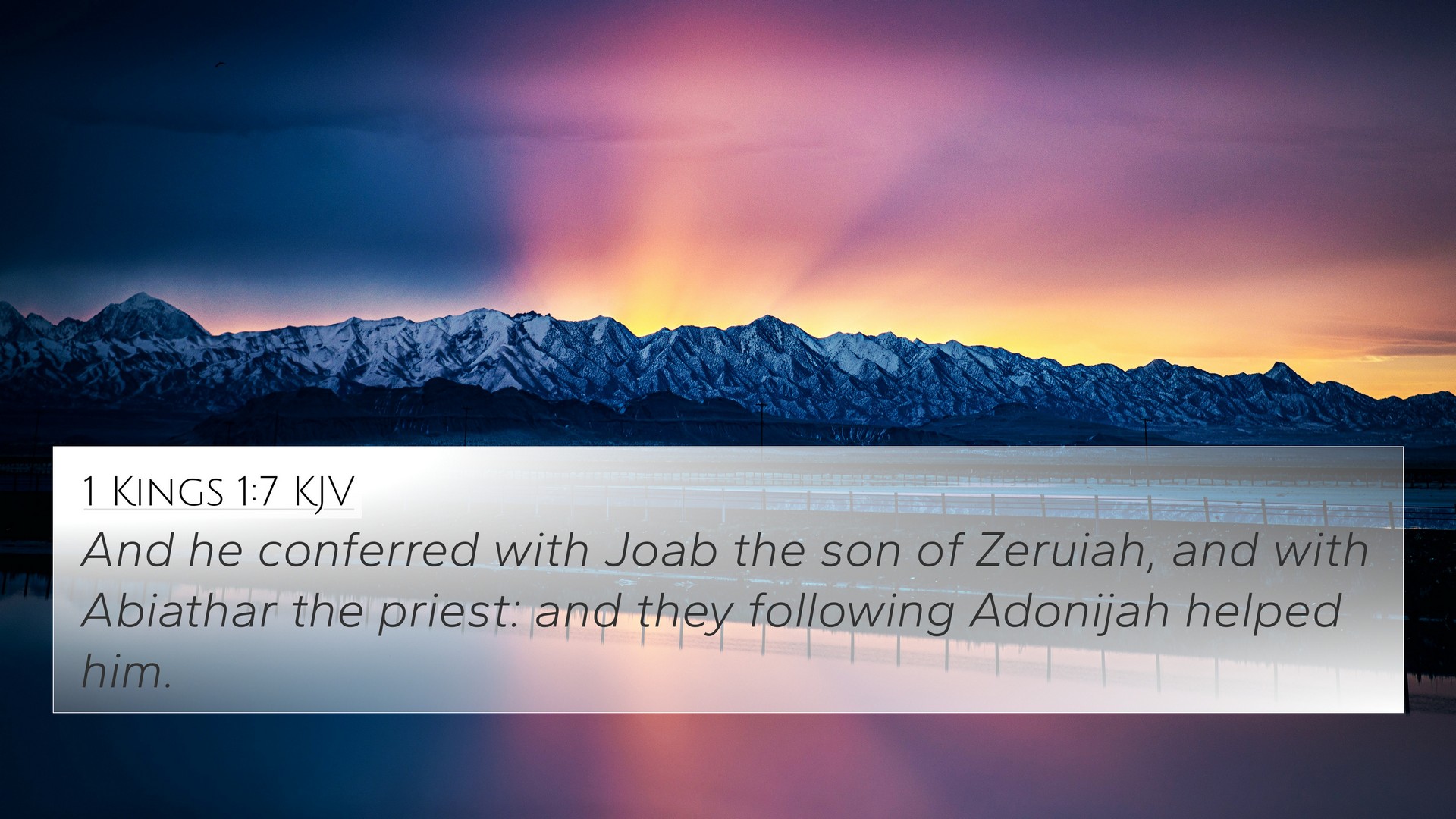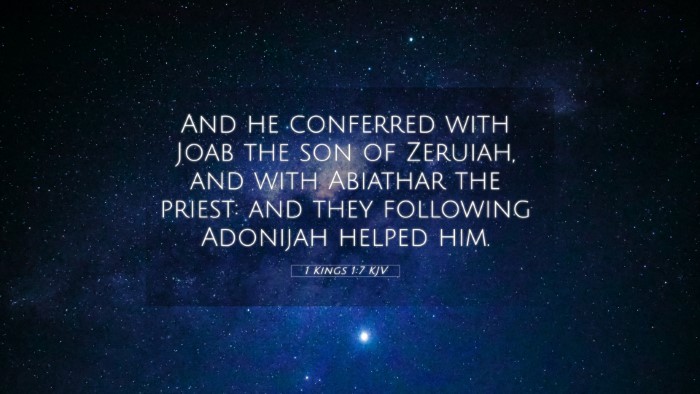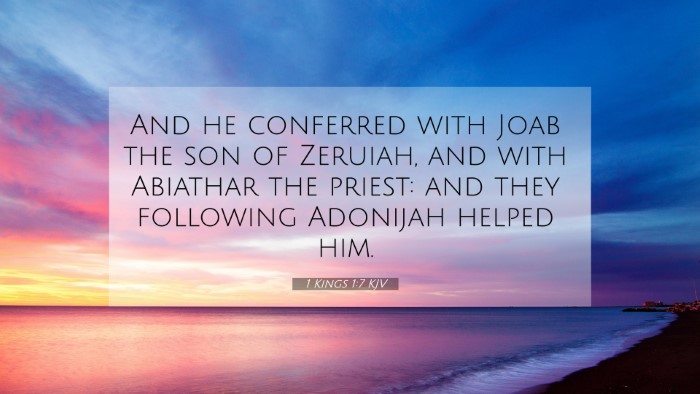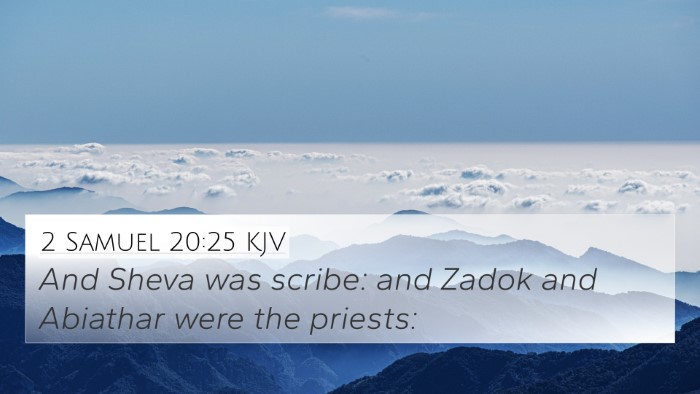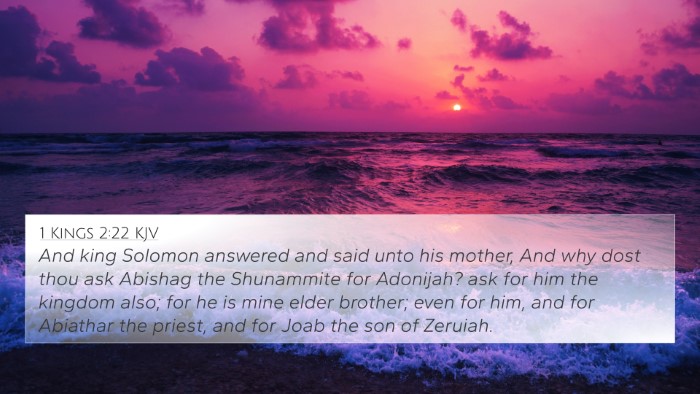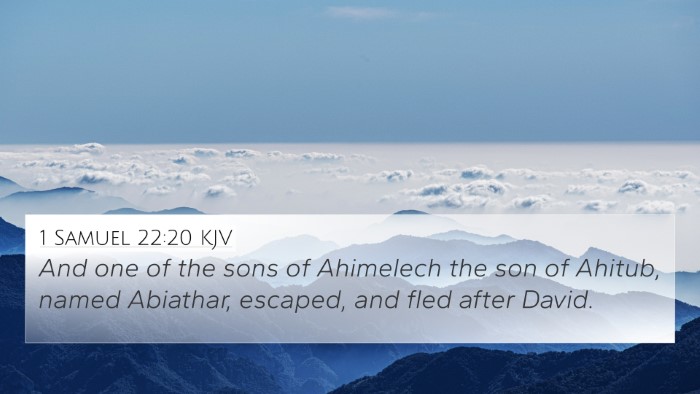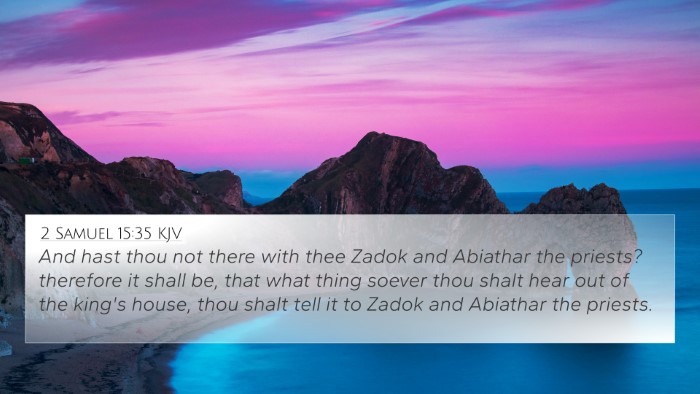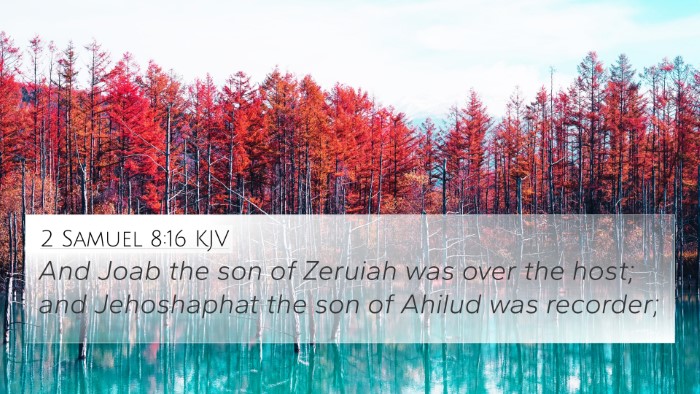Understanding 1 Kings 1:7
The Bible verse 1 Kings 1:7 states:
"And he conferred with Joab the son of Zeruiah, and with Abiathar the priest: and they followed Adonijah, helped him."
This verse delves into a pivotal moment in the succession of King David, showcasing political maneuvering and alliances that set the stage for upcoming conflicts within the Israelite monarchy.
Contextual Background
In the backdrop of 1 Kings 1, King David is old and his health is waning. The verse illustrates how Adonijah, the son of David, seeks to legitimize his claim to the throne with the support of key political figures: Joab and Abiathar. This illustrates a common practice of royal succession where influential individuals play vital roles in determining the future leadership.
Interpretation and Analysis
Combining insights from various commentaries, we can analyze the intricacies of this verse further:
-
Political Alliances:
Matthew Henry emphasizes the significance of Joab and Abiathar’s support for Adonijah, indicating that their involvement lends legitimacy to his claim and highlights the factional disputes during David's reign.
-
Rivalry and Ambition:
Albert Barnes notes the ambition of Adonijah juxtaposed against David's wishes, suggesting that this moment marks a turning point fraught with tension and the potential for civil strife in Israel.
-
Spiritual Implications:
Adam Clarke draws attention to the spiritual repercussions of this alliance, hinting at how the elevation of Adonijah could challenge God’s will as represented through His chosen king, Solomon.
Cross-References
1 Kings 1:7 is interconnected with various other scriptures that deepen our understanding of the themes within this verse:
- 1 Kings 1:5 - Describing Adonijah's declaration as king and his attempt to usurp the throne.
- 2 Samuel 15:12 - Absalom's conspiracy against David, demonstrating the consequences of political intrigue.
- 1 Chronicles 22:9 - God's promise regarding Solomon’s reign, in contrast to Adonijah’s claim.
- 1 Kings 2:25 - The eventual execution of Adonijah for seeking power unlawfully reflects the outcome of such alliances.
- 1 Samuel 15:23 - The theme of rebellion ties back to Adonijah’s actions against God’s chosen leadership.
- Proverbs 16:18 - Pride precedes destruction, reflecting the downfall rooted in ambition.
- John 19:15 - Echoes of kingship and rejection, elucidating parallels between earthly kings and divine authority.
Thematic Connections
The thematic connections of 1 Kings 1:7 provide insights into broader Biblical narratives concerning power, ambition, and divine sovereignty. These themes resonate throughout both the Old and New Testaments.
Linking Bible Scriptures
Exploring the connections between Bible verses enhances our understanding and reveals the collective message of God’s Word:
- Ambition and Authority: The ambitions shown in 1 Kings 1:7 echo throughout history in the conflicts of power—a theme also explored in Matthew 20:25-28.
- God’s Sovereignty: The assurance of God’s control is highlighted in Romans 13:1, reminding us of His ultimate authority over earthly rulers, further suggesting the futility of human ambition.
Tools for Bible Cross-Referencing
Utilizing cross-references can significantly aid in understanding scripture. Here are some resources and methods:
- Bible Concordance: A tool to find specific words or themes across scripture.
- Cross-Reference Bible Study: Engaging in studies that highlight interconnected verses for deeper insights.
- Bible Chain References: Following a chain of related scriptures encourages exploring thematic continuity.
Conclusion
1 Kings 1:7 serves as a crucial narrative in understanding the complexities of leadership and divine mandate in biblical history. The alliances formed in this verse not only illustrate the immediate tensions but also foreshadow the overall divine plan for the monarchy of Israel. By examining this verse and its connections through cross-referencing, one gains a richer, more nuanced understanding of God’s sovereignty and the recurring themes within His Word.
